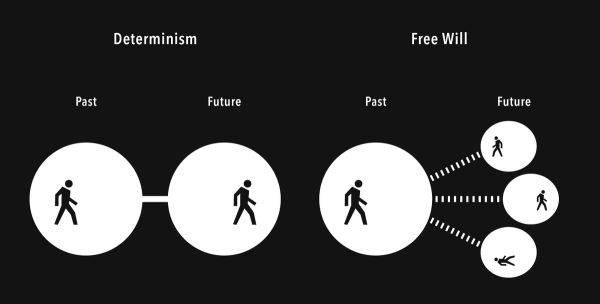The Ultimate Debate: Should Puerto Rico Transition to Statehood?

Photo Courtesy Luxury Travel Advisor
In an America where there have always been 50 states, how would you feel if you were asked, “Do you want a 51st star on our flag?” Many Americans are split on this decision, and many aren’t sure what this means. Some claim that it challenges the roots of our democracy, while others claim it is only fair.
What is Puerto Rico and Statehood?
Puerto Rico is a Caribbean island and an unincorporated U.S. territory. A U.S. territory is a land that the U.S. officially governs, but it is not an officially recognized state. Territories are often deprived of resources and supposedly treated as “second class citizens.” Puerto Rico has recently been protesting for equal American rights, which introduced the concept of statehood. Statehood is the transition of which a territory becomes an official state. This is not a new concept: Hawaii and the District of Columbia transitioned from a territory to a state making them the 49th and 50th states. The concept of statehood has caused controversy, and recently, Puerto Rico’s majority has voted for statehood in a survey conducted by the Puerto Rico Report. The main group pushing for statehood has been the Democratic Party of Puerto Rico, who are relatively similar to the U.S. democrats. Many claim that statehood would solve many of their conflicts. However, as it’s important to view all sides of the argument, there are good, bad, and the result.
The Good
Among Puerto Rico’s greatest economic challenges is chronically high poverty, especially among children, and a low labor-force participation. In 2019, 43.1% of the total population and 57% of children lived in poverty in Puerto Rico, and they are in vital need of benefits. Yet, Puerto Rico residents do not have access to the same assistance that is available to people facing such challenges in the mainland United States. Puerto Rico’s residents make full tax contributions to welfare, yet the U.S. federal government has long neglected Puerto Rico when it comes to federal programs. If Puerto Rico were a state, the federal government would provide funding for about 83 percent of Medicaid costs, which nearly half of the island relies on. The amount that we cover right now is one fourth of what we would cover if Puerto Rico was a state. People would not have to pay for their medical bills themselves, and they wouldn’t be driven into debt. If they became a state, they could obtain much more advanced welfare benefits.
On top of that, hurricanes are severe in Puerto Rico, making it very vulnerable. During hurricanes, US states get support, donations, and government funding. However, in Puerto Rico, they are still suffering from a hurricane that occured 4 years ago, receiving minimal support in comparison. The island is still recovering from Hurricane Maria in 2017, which led to the deaths of at least 2,975 people. Puerto Ricans are handling 3 crises without sufficient support.
Another main argument brought up is their status as citizens and the possession of equal rights. If, according to the Universal Declaration of Human Rights, “all men are equal in the eyes of the law,” why don’t Puerto Ricans have equal say in the laws they must uphold? President Biden announced that “You deserve a fair return for your work, an equal chance to get ahead, and a government that treats every American citizen equally.” Were Puerto Ricans included in that statement? It appears not. NBC news reports that the Supreme Court allegedly made racist remarks, calling them “alien races” that were not ready for democracy. Statehood would allow higher employment rates, encourage fair incomes for work, and address racism and xenophobia on the mainland.
The Bad
Despite the benefits, there are downsides of the transition. The truth is that many Puerto Ricans don’t really want statehood. In a poll by the New York Times supposedly proved that the majority of Puerto Ricans wanted statehood, it turned out that only about a quarter of the population showed up. Therefore, the poll didn’t necessarily represent Puerto Ricans. They feel as if they might lose their cultural heritage, language, and their standing in the Olympics. Many people claim that in the cases of Hawaii and the District of Columbia, the states lost their cultural identity in the transition.
Another big part of the debate is the fact that the U.S. would inherit all of Puerto Rico’s debt. Many doubt the U.S.’s ability to handle it. The island has about $49 billion worth of debt, which would only pile into the already high mountain of U.S. debt. The U.S. is struggling to keep up with the poverty and fundings needed to pay off its own debt and support states.
Alternatives
Many have been suggesting a “better plan” called autonomy. It would be a self-governing country. Puerto Ricans wouldn’t have to be under the U.S.’s control, giving them more control over their own land. They could have representatives that actually vote on ruling policies, and people could have a say in their democracy. Puerto Rico could also decide what happens with their debt and taxes giving them more freedom.
The Result
Although both sides of the argument are plausible and understandable, many are unaware of this debate or stand in the middle. The facts still stand: Puerto Rico is in need of help, whether it be through statehood, autonomy, or staying as a territory. They need help to get back on their feet.

Grade: 10th
Years on Staff: 3
Why are you writing for the Flintridge Press?
The privilege of being able to write, freely and expressively,...






